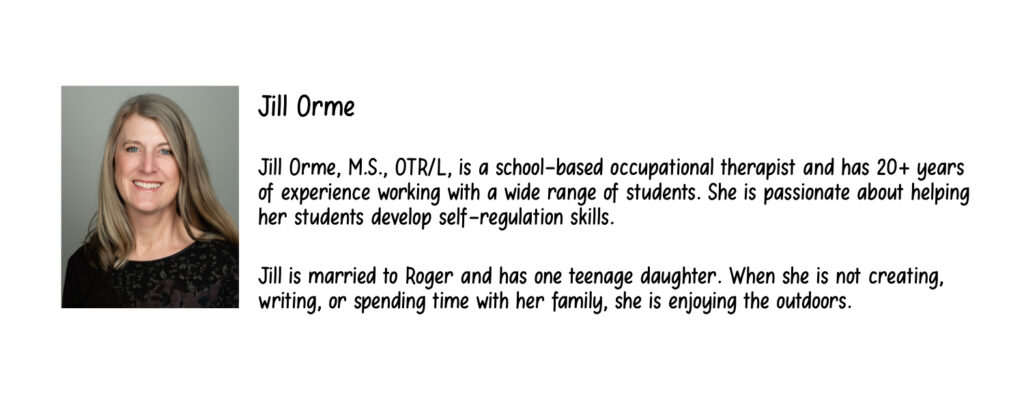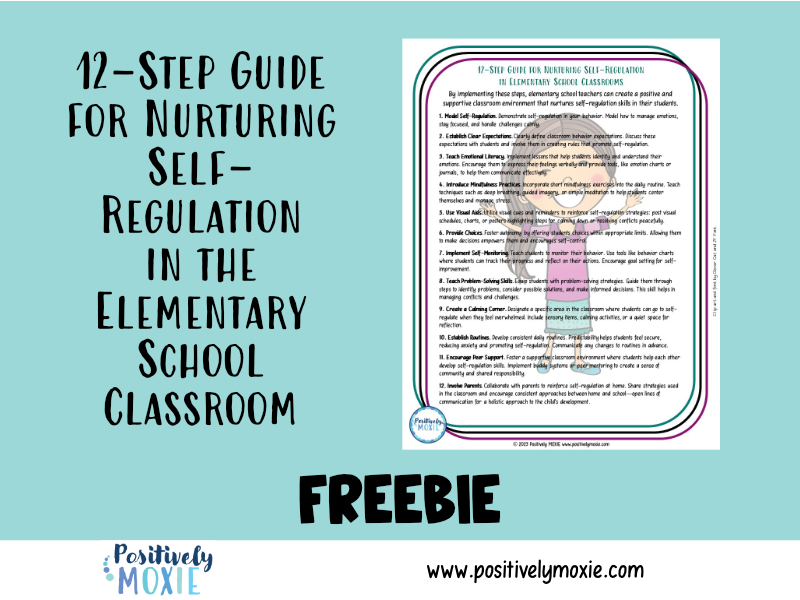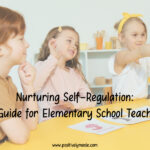A Self-Regulation Guide for Elementary School Teachers
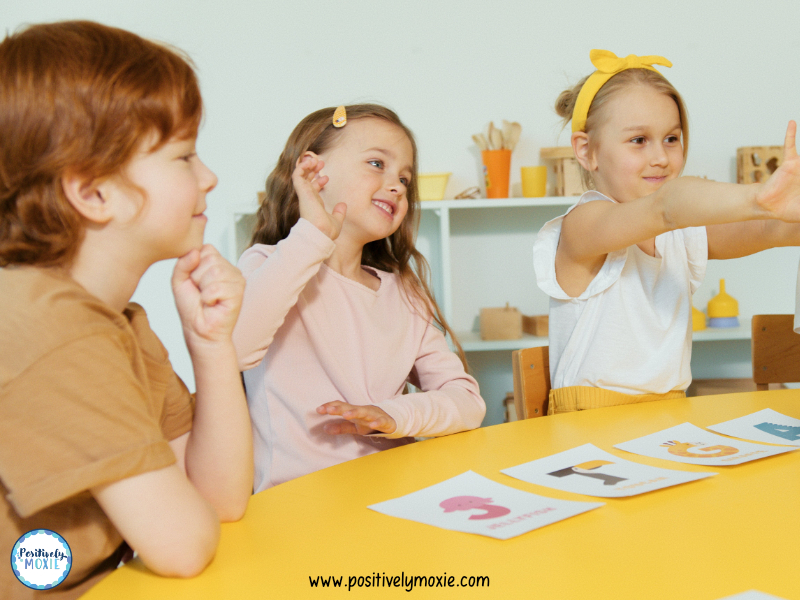
Hello, dear elementary school teachers! In the bustling world of education, self-regulation is one essential skill that can significantly impact a child’s academic and personal growth. Use this self-regulation guide to help nurture these important skills with the students you work with. It is like giving them the keys to their success. In this blog post, we’ll explore the developmental stages of self-regulation and how you can help teach your young learners in this self-regulation guide to build a strong foundation.
Understanding the Developmental Stages with this Self-Regulation Guide
1. Emerging Awareness (Preschool and Kindergarten)
At this stage, children are beginning to understand their emotions and impulses. Teach them basic emotional vocabulary to help them label and express their feelings. Encourage them to take deep breaths or count to 10 when upset to begin developing coping strategies.
2. Building Control (Early Elementary)
Children start to gain more control over their emotions and actions. Teach them about consequences and how their actions can affect themselves and others. Introduce simple mindfulness exercises or relaxation techniques to help them manage stress and anxiety.
3. Self-Monitoring (Late Elementary)
Students become more aware of their behaviors and can assess their actions. Encourage them to set achievable goals and create a plan to reach them. Foster a growth mindset by emphasizing that mistakes are opportunities for learning and improvement.
4. Advanced Self-Regulation (Upper Elementary)
By this stage, students should be able to regulate their emotions and actions effectively. Teach them problem-solving skills and how to resolve conflicts peacefully. Promote independence by allowing them to make choices and decisions within appropriate boundaries.
Develop a Strong Foundation with these Tips within this Self-Regulation Guide
Provide Tools and Strategies
Offer a toolkit of strategies students can use to self-regulate, such as deep breathing exercises, visual schedules, or sensory tools. Incorporate mindfulness activities into your daily routine to help students practice self-awareness and relaxation.
Teach Emotional Literacy
Incorporate activities that promote emotional intelligence, such as storytelling, role-playing, or discussing scenarios involving different emotions. Encourage empathy by discussing how actions can affect others.
Model Self-Regulation
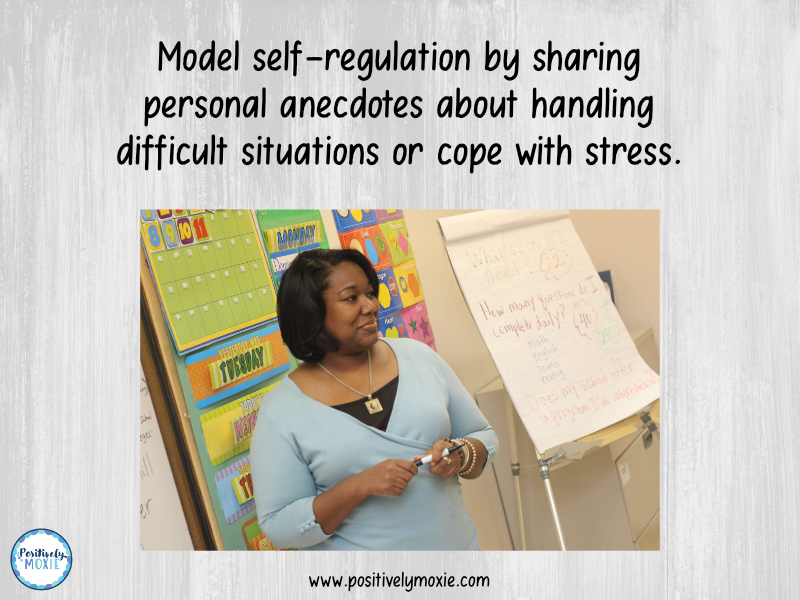
As a teacher, you are a role model. Demonstrate self-regulation by managing your emotions and responses in front of your students. Share personal anecdotes about how you handle difficult situations or cope with stress.
Create a Supportive Environment
Establish a safe and respectful classroom atmosphere where students feel comfortable expressing their feelings and seeking help when needed. Display visual cues like emotion charts to help children recognize and label their emotions.
Foster a Growth Mindset
Praise effort and perseverance rather than focusing solely on outcomes. Encourage students to set achievable goals and track their progress.
In the journey of nurturing self-regulation skills in elementary school students, remember that it’s a gradual process. Each child will progress at their own pace. By understanding the developmental stages and implementing these strategies, you’ll be helping your students build a strong foundation in self-regulation. This invaluable skill will serve them well throughout their lives.
Are you looking for lessons on how to teach these important skills in your classroom? Please see the resource below to help you! This resource has over 100 pages of worksheets, posters, and activities designed for learning self-regulation. Self-regulation helps teach students emotional control and emotional regulation skills. This BUNDLE includes worksheets, quizzes, posters, emotions cards, tools posters, a file folder for student reference, and a flip book for teaching students self-regulation skills.
